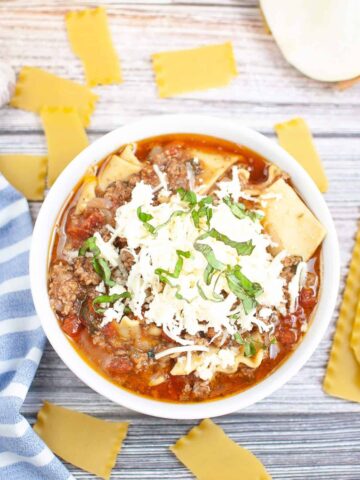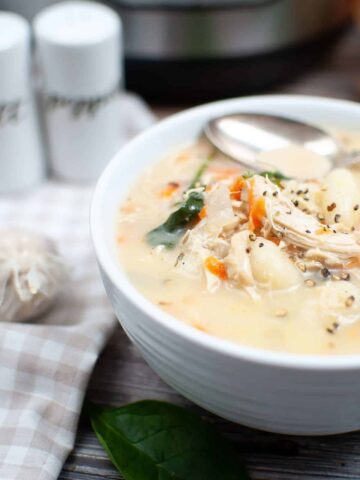Muffin tins are an essential tool for any baker, but they aren't invincible. If you've noticed rust forming on your muffin tin, you might be wondering what's causing this problem. In this article, we'll delve deep into the reasons behind muffin tin rusting and provide you with some tips to prevent it from happening in the future.
Understanding the chemistry behind rust formation
Understanding the science behind rust formation can give you a better idea of why your muffin tin is rusting. Rust is a form of corrosion that occurs when iron and oxygen come into contact with moisture. In this reaction, iron is oxidized to form rust.
Most muffin tins are made from steel, which is primarily composed of iron. When steel comes into contact with water or moisture from the air, rust can form rapidly. Along with oxygen and moisture, high temperatures can also accelerate the process of rust formation.
It is important to note that rust formation can be prevented or slowed down by using protective coatings or paints on the surface of the metal. These coatings act as a barrier between the metal and the environment, preventing moisture and oxygen from coming into contact with the metal. Additionally, keeping metal objects dry and storing them in a cool, dry place can also help prevent rust formation. Understanding these preventative measures can help prolong the lifespan of your metal objects and prevent the need for frequent replacements.
How moisture and air exposure affect the rusting process
Moisture is the primary culprit of rust formation in muffin tins. When moisture comes into contact with iron, it forms a chemical reaction that leads to rust formation. Most muffin tins are exposed to moisture during the baking process, especially if you’re baking moist treats like cupcakes or muffins.
Air exposure also plays a role in rust formation. When steel is exposed to air for prolonged periods of time, it can oxidize and form rust. This process is accelerated by high humidity levels and moisture in the air.
It’s important to note that the type of iron used in muffin tins can also affect the rusting process. Some manufacturers use stainless steel, which is less prone to rusting than regular steel. However, even stainless steel can rust if it’s exposed to harsh conditions for extended periods of time. To prevent rust formation, it’s recommended to clean and dry your muffin tins thoroughly after each use and store them in a dry place.
The impact of acidic food on muffin tin rusting
Acidic foods can also accelerate the rusting process. Foods that are high in acidity, such as citrus fruits, tomatoes, and vinegar, can cause the protective coating on the muffin tin to break down, exposing the iron to moisture and air.
Thus, it's important to pay attention to the acidity of the batter or food you’ll be baking and consider using muffin liners or alternative materials to protect your muffin tin from acidic ingredients.
In addition to using muffin liners or alternative materials, there are other steps you can take to prevent muffin tin rusting. One option is to coat the muffin tin with a layer of oil or cooking spray before use. This can help create a barrier between the acidic ingredients and the metal, reducing the risk of rusting. Another option is to clean and dry the muffin tin thoroughly after each use, as moisture can also contribute to rust formation.
It's also worth noting that muffin tin rusting can be more of a problem in humid environments. If you live in a particularly humid area, it may be worth investing in a dehumidifier for your kitchen or storing your muffin tin in a dry, well-ventilated area when not in use.
Tips for preventing rust formation in your muffin tin
Preventing rust formation in your muffin tin is key to extending its lifespan. Here are some tips to help you protect your muffin tin from rust:
- Always dry your muffin tin thoroughly after washing
- Avoid using abrasive sponges or detergents that can scratch the surface and remove the protective coating on the muffin tin
- Store your muffin tin in a dry and non-humid place
- Consider using non-stick cooking spray or muffin liners to protect the surface from direct contact with food
- Avoid soaking your muffin tin in water for prolonged periods of time
- Choose high-quality, rust-resistant muffin tins that are made of materials like aluminum or silicone
In addition to the above tips, there are a few other things you can do to prevent rust formation in your muffin tin. Firstly, try to avoid using metal utensils when removing muffins from the tin, as this can scratch the surface and make it more susceptible to rust. Instead, use silicone or wooden utensils to gently remove your baked goods.
Another tip is to avoid leaving any acidic or salty foods in your muffin tin for extended periods of time. These types of foods can cause the protective coating on the surface of the tin to break down, making it more vulnerable to rust formation. If you do need to leave food in your muffin tin for a while, be sure to remove it as soon as possible and wash the tin thoroughly.
How to properly clean and maintain your muffin tin to prevent rusting
Proper cleaning and maintenance can also prevent rust formation in your muffin tin. Here's how to clean and maintain your muffin tin:
- After baking, allow the muffin tin to cool down before washing it with warm water, dish soap, and a soft sponge
- Avoid using metal scrubbers or rough sponges that can scratch the surface and remove the protective coating on the muffin tin
- Rinse the muffin tin thoroughly with warm water and dry it with a clean towel or let it air dry
- Store the muffin tin in a dry and non-humid place to prevent moisture buildup
- Inspect the muffin tin regularly for signs of rust and replace it if necessary
It's important to note that some muffin tins are made of materials that are more prone to rusting than others. Non-stick muffin tins, for example, are less likely to rust than traditional metal ones. If you're in the market for a new muffin tin, consider investing in a non-stick option to reduce the risk of rust formation and make cleaning even easier.
Alternatives to metallic muffin tins for rust-free baking
If you're looking for rust-free baking options, there are several alternatives to metallic muffin tins. For example, silicone muffin pans are a great option that's easy to clean and doesn't rust. Additionally, ceramic and glass muffin tins are also available although they may get hot faster. These alternatives are particularly useful if you often work with acidic ingredients or if you’re looking for more durable baking materials.
Another alternative to metallic muffin tins is paper muffin cups. These cups are disposable, making them a convenient option for baking and cleanup. They also come in a variety of colors and designs, adding a fun touch to your baked goods. However, it's important to note that paper cups may not be as sturdy as other options and may not hold their shape as well.
If you're looking for an eco-friendly option, consider using silicone baking cups. These cups are reusable and can withstand high temperatures, making them a durable choice. They also come in a variety of colors and shapes, allowing you to get creative with your baking. However, it's important to note that silicone cups may not provide the same level of browning as metallic or ceramic options.
Common mistakes that can cause muffin tins to rust faster
There are some common mistakes that bakers make that can accelerate rust formation on muffin tins. These include:
- Leaving the muffin tin wet or moist for prolonged periods of time
- Using harsh or abrasive cleaning materials on the muffin tin
- Not drying the muffin tin properly after washing
- Using muffin tins with scratches or other surface damage
- Not seasoning the muffin tin properly before the first use, as seasoning can create a natural protective layer on the surface of the muffin tin
Another common mistake that can cause muffin tins to rust faster is storing them in a damp or humid environment. This can create a breeding ground for rust-causing bacteria and accelerate the rusting process. It is important to store muffin tins in a dry and well-ventilated area to prevent rust formation.
Additionally, using acidic ingredients in your muffin batter can also contribute to rust formation on your muffin tins. Acidic ingredients such as lemon juice, vinegar, or buttermilk can react with the metal in the muffin tin and cause it to corrode. To prevent this, you can line your muffin tins with paper liners or use non-reactive baking pans made of materials such as silicone or glass.
Recognizing when it's time to replace your rusty muffin tin
Despite regular maintenance, muffin tins can still rust over time. If you notice that your muffin tin has a lot of rust and the coating is damaged, it may be time to replace it. Additionally, if you're experiencing issues with food sticking to the surface or uneven baking, this may also be a sign that it’s time to replace your muffin tin.
It's important to note that using a rusty muffin tin can be harmful to your health. Rust can contain harmful bacteria that can contaminate your food and cause food poisoning. Therefore, it's crucial to replace your muffin tin as soon as you notice signs of rust or damage to the coating.
How to choose a high-quality, rust-resistant muffin tin for long-lasting use
When shopping for a new muffin tin, look for high-quality options that are rust-resistant. Consider materials like aluminum, silicone, or ceramic that are durable and won't rust easily. Additionally, pay attention to the size of the muffin tin and make sure it fits your baking needs.
By understanding the chemistry behind rust formation and taking preventative measures, you can keep your muffin tin free from rust for years to come.
Another important factor to consider when choosing a muffin tin is the shape of the cups. Some muffin tins have straight sides, while others have tapered sides. Straight-sided muffin cups are ideal for making muffin tops, while tapered cups are better for creating muffins with a more traditional shape.
It's also important to choose a muffin tin with a non-stick coating to prevent your muffins from sticking to the pan. This will make it easier to remove your muffins from the tin and ensure that they come out looking perfect every time.




Leave a Reply